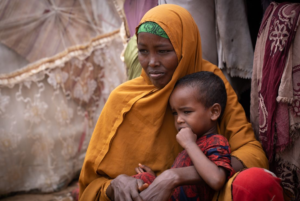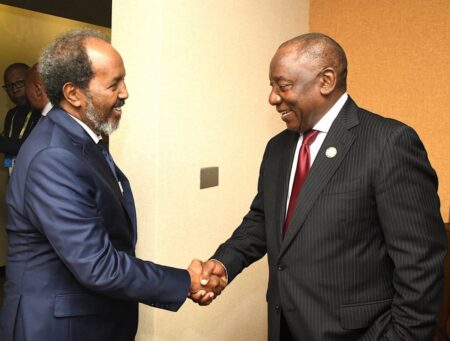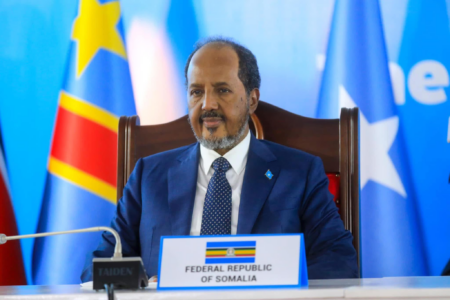In an exclusive interview with the Somali National News Agency (SONNA), Dr. Hodan Osman Abdi, the Ambassador of the Federal Republic of Somalia to China, shared deep insights into the evolving Somali-Chinese relationship.
This relation is rooted in centuries of history and now entering a new phase focused on economic self-reliance and capacity building.
600 Years of Somali-Chinese Relations
Somalia was the first East African country to establish formal diplomatic relations with the People’s Republic of China in 1960.
However, as Ambassador Hodan noted, the ties between the two nations go back nearly 600 years, when the famed Chinese explorer Zheng He sailed to the Somali coast, opening the ancient Maritime Silk Road.
Today, with China reviving its global Belt and Road Initiative, Somalia is once again positioned to play a pivotal role in this international vision.
Somalia’s Global Gateway: A New Diplomatic and Trade Identity
Somalia recently participated in high-level diplomatic and trade meetings in China, led by Foreign Minister Abdisalaan Abdi Ali (Dhaay).
For the first time, Somali entrepreneurs showcased locally made products at the China-Africa Economic and Trade Expo (CAETE).
Ambassador Hodan told SONNA:
“Many people believe Somalia has nothing to export, but this event shattered that stereotype.
It proved that Somali products have real value and potential in global markets.”
During the same visit, Chinese President Xi Jinping announced that imports from African countries with strong ties to China would be exempt from customs duties—a move Ambassador Hodan described as “encouraging and essential for enabling Somali exports to enter the Chinese market.”
Long-Term Investment in Somali Capacity Building
Ambassador Hodan emphasized that China is increasingly focusing on sustainable investment in education, vocational training, and institutional development—key pillars for building a nation’s future.
“Financial aid is important in times of crisis, but what truly builds a country is its ability to stand on its own through education and skill development.”
She highlighted China’s growing support for Somali students and professionals through scholarships and training programs, calling it a sign of a mature and strategic partnership.
Quoting a well-known Chinese proverb, she added:
“Giving someone a fish is good, but teaching them how to fish is better. That’s the essence of Somali-Chinese relations—we’re not just receiving help, we’re learning how to help ourselves.”
Somalia at the Heart of the New Silk Road
The ambassador also pointed to Somalia’s unique geographic position on the Indian Ocean, making it a natural bridge between the Arab world and Africa.
“As China renews the Belt and Road Initiative, Somalia has a real opportunity to become a key connector between the Indian Ocean, the Arab world, and the rest of Africa.”
Somali-Chinese Partnership Redefines Somalia’s Global Image
Ambassador Hodan concluded by stressing the importance of seizing this historic moment:
“We must use this momentum to build a future where Somalia is no longer defined by crisis, but by its potential and contributions.”
Somali-Chinese relations are evolving into a new model of cooperation—one centered on mutual growth, self-reliance, and breaking free from the cycles of dependency that have long defined international aid.
From Zheng He’s historic voyage six centuries ago to China’s modern trade commitments, a new Somali-Chinese partnership is emerging.
One that could reshape how the world sees Somalia: not as a nation in perpetual crisis, but as a rising example of smart diplomacy, strategic geography, and investment in human capital.








